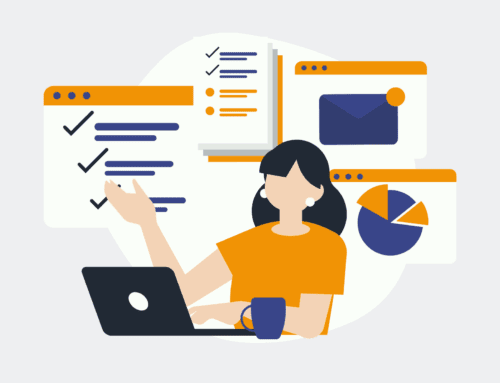Boosting HR Efficiency: Practical Applications of AI Today
In today’s fast-paced business landscape, the pursuit of efficiency is relentless, and nowhere is this more critical than within Human Resources. HR departments, often burdened by repetitive administrative tasks, are prime candidates for transformation through artificial intelligence. At 4Spot Consulting, we’ve seen firsthand how strategic AI integration can liberate HR professionals from low-value work, allowing them to focus on strategic initiatives that truly impact an organization’s growth and culture. It’s not about replacing human insight; it’s about amplifying it.
The misconception that AI in HR is a futuristic fantasy or a complex, inaccessible technology often prevents companies from exploring its immediate benefits. The reality is, practical AI applications are already here, delivering tangible ROI. We’re talking about automating everything from the initial touchpoints in the recruitment funnel to sophisticated employee experience management, all designed to save high-value employees significant portions of their day.
Transforming Recruitment: Beyond Basic ATS
Recruitment is arguably where AI’s impact is most immediate and visible. Traditional Applicant Tracking Systems (ATS) have streamlined parts of the process, but they often leave significant manual gaps. AI steps in to fill these. Imagine an intelligent system that not only parses resumes but also screens candidates based on custom criteria, identifies skills gaps, and even predicts cultural fit through natural language processing. This isn’t just about keyword matching; it’s about contextual understanding and predictive analytics.
For instance, an AI-powered tool can automate the initial screening of hundreds of applications, identifying the top 10-20% that genuinely align with the role’s requirements and company values. This saves recruiters countless hours of sifting through unqualified resumes. Furthermore, AI can personalize candidate communications, schedule interviews, and provide immediate feedback, enhancing the candidate experience and reducing time-to-hire. This shifts the recruiter’s role from administrative gatekeeper to strategic talent advisor.
Streamlining Onboarding and Employee Lifecycle Management
The journey with an employee doesn’t end at hire; it truly begins. Onboarding is a critical phase, and often a bottleneck for growing companies. AI can orchestrate a seamless onboarding experience, ensuring all necessary paperwork, training modules, and system accesses are proactively managed. From sending automated welcome packets to provisioning access to various platforms, AI can ensure new hires feel supported and productive from day one, without burdening HR staff with endless checklists.
Beyond onboarding, AI can play a pivotal role in ongoing employee lifecycle management. Consider performance management: AI tools can analyze aggregated performance data, identify trends, and even flag potential burnout risks, allowing HR to intervene proactively. For employee engagement, AI-driven sentiment analysis of internal communications or anonymous surveys can provide real-time insights into morale and identify areas for improvement, fostering a more engaged and productive workforce.
AI for Enhanced HR Operations and Compliance
The administrative burden in HR extends to compliance, data management, and operational reporting. AI’s ability to process vast amounts of data quickly and accurately is invaluable here. For example, AI can monitor regulatory changes and automatically update policies or flag compliance risks, reducing the likelihood of costly errors. In terms of data organization, AI-powered systems can ensure a “single source of truth” for employee data, integrating disparate systems like payroll, benefits, and performance management.
We recently worked with an HR tech client facing an overwhelming volume of resume intake and parsing. Their team was spending over 150 hours per month on manual data entry and categorization. By leveraging Make.com in conjunction with AI enrichment tools, we automated their entire resume intake process, parsing candidate data, extracting key skills, and syncing it directly into their Keap CRM. The result? A significant reduction in manual labor, faster processing times, and a substantial increase in team productivity. This isn’t just about saving time; it’s about reallocating human capital to higher-value, more strategic tasks.
The Strategic Imperative: Beyond Automation, Towards Foresight
Ultimately, the practical application of AI in HR is about moving beyond mere automation to strategic foresight. When mundane tasks are handled by intelligent systems, HR leaders can shift their focus to critical areas like talent development, succession planning, and fostering a positive company culture. AI provides the data-driven insights needed to make informed decisions about workforce strategy, identifying future skill requirements, and optimizing resource allocation. It empowers HR to become a true strategic partner in the organization’s success, directly contributing to top-line growth and bottom-line efficiency.
The journey to an AI-powered HR department begins with a clear understanding of current inefficiencies and a strategic roadmap. It’s not about implementing technology for technology’s sake, but about tying every solution to measurable ROI and business outcomes. This is where 4Spot Consulting excels, using frameworks like OpsMap to diagnose pain points and OpsBuild to implement tailored, scalable AI and automation solutions. We don’t just build; we plan for lasting transformation.
If you would like to read more, we recommend this article: Mastering AI in HR: Your 7-Step Guide to Strategic Transformation






